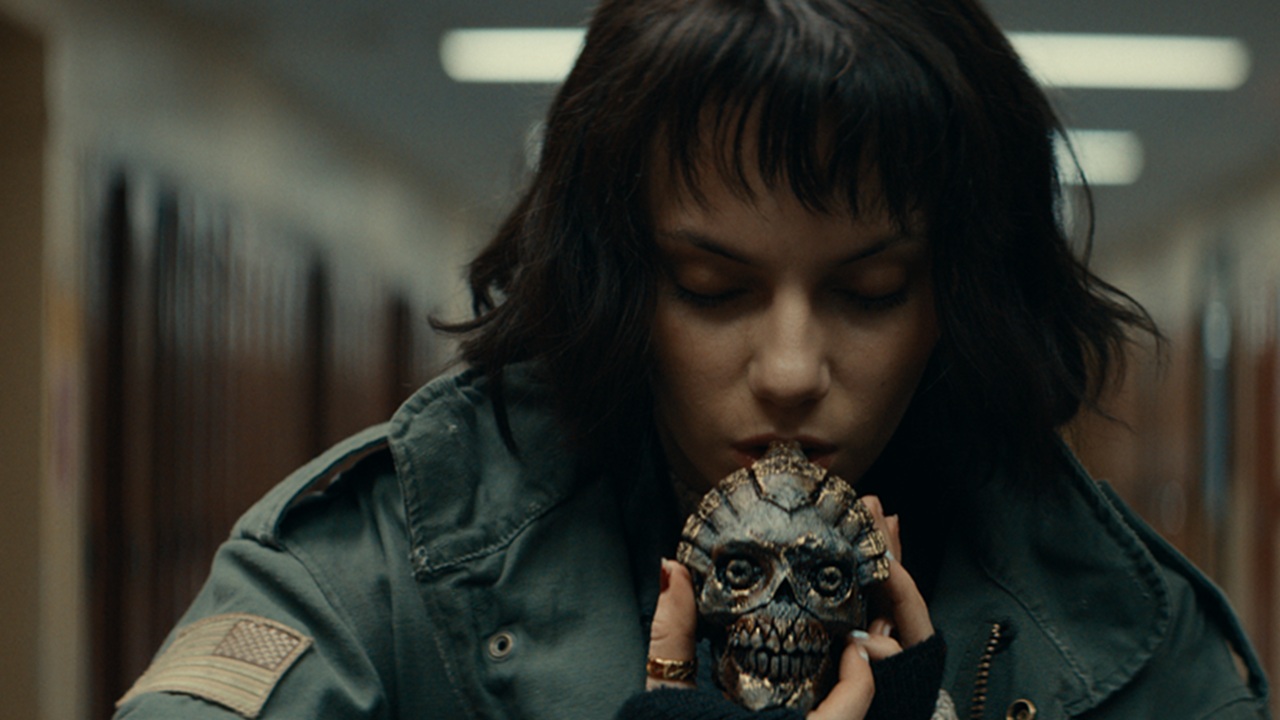Ice-T on metal, Dave Mustaine and making it against the odds: “My hustle is strong. It’s a survival instinct”
Body Count frontman, hip hop icon, controversy magnet, friend of Megadeth, Lemmy, Slayer and more – it’s Ice-T’s world, we just live in it
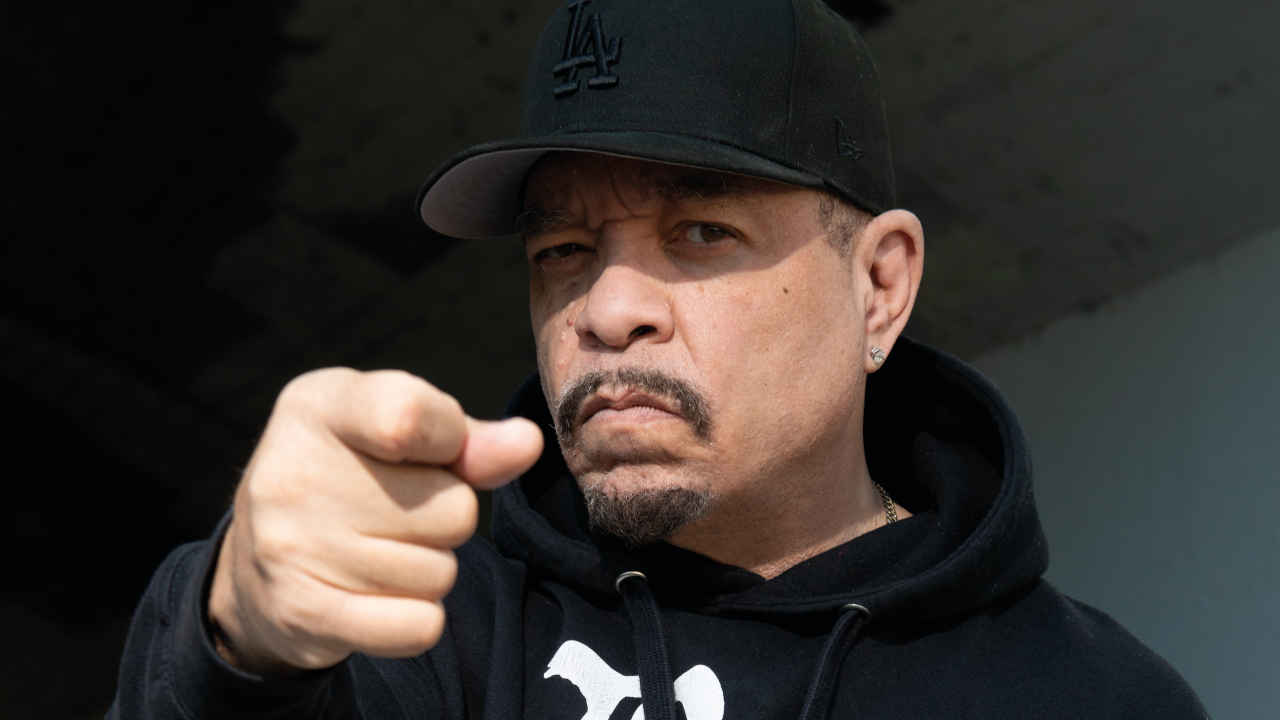
Select the newsletters you’d like to receive. Then, add your email to sign up.
You are now subscribed
Your newsletter sign-up was successful
Want to add more newsletters?

Every Friday
Louder
Louder’s weekly newsletter is jam-packed with the team’s personal highlights from the last seven days, including features, breaking news, reviews and tons of juicy exclusives from the world of alternative music.

Every Friday
Classic Rock
The Classic Rock newsletter is an essential read for the discerning rock fan. Every week we bring you the news, reviews and the very best features and interviews from our extensive archive. Written by rock fans for rock fans.

Every Friday
Metal Hammer
For the last four decades Metal Hammer has been the world’s greatest metal magazine. Created by metalheads for metalheads, ‘Hammer takes you behind the scenes, closer to the action, and nearer to the bands that you love the most.

Every Friday
Prog
The Prog newsletter brings you the very best of Prog Magazine and our website, every Friday. We'll deliver you the very latest news from the Prog universe, informative features and archive material from Prog’s impressive vault.
Tracy Marrow is one of life’s high achievers. “Good luck!” the man better known as Ice-T says when we inform him we’re going to try to cover as much of his career as we can over our allotted hour together, before shooting us a grin, rocking his head back and unleashing the first of many deep belly laughs.
Orphaned as a young child, Ice’s early life took in homelessness and a stint in the army before he became one of the defining voices of West Coast hip hop in the 80s. The 1990s saw him unexpectedly pivot towards metal with the formation of his controversial band Body Count. “I never wanted to be the best, I just wanted to be in the league,” he says with a shrug. “When I started rapping, I just wanted to be mentioned amongst the rappers. With Body Count we just wanted to be involved in metal so they would mention us. Maybe not the best, but we’re in there.”
Today the 65-year-old is in the unique position of being both a hip hop elder statesman and an iconic metal singer. His circle of friends and collaborators includes Megadeth’s Dave Mustaine, Hatebreed’s Jamey Jasta and members of Slayer. He’s got an equally high-profile sideline as an actor, and he’s just launched his new podcast, Ice-T’s Daily Game. So how do you become a multidisciplinary legend? Over to you, Ice…

You lost both your parents at a very early age. How hard was that for you as a child?
“Wasn’t as hard as you think. I was with my mother, we was watching TV and she just leaned her head back and had a heart attack. It wasn’t as traumatic as you think, you’re too young, you just worry about yourself. When my father passed I was in the seventh grade. I didn’t know what was gonna happen to me, but I was shipped out to LA to live with his sister.”
Does losing your parents so young give you a better understanding of your own mortality?
“It made me understand life better. The guy who is 20 years older than me might outlive me, the kid that is calling me an old motherfucker might die! You might know how much money you have, but nobody knows how much time they have. I learned early in life that you don’t get a preset.”
Sign up below to get the latest from Metal Hammer, plus exclusive special offers, direct to your inbox!
You lived with your aunt in LA until you were 17, but then you left and had to survive on your own…
“Yeah, and I’ve never had a relative to fall back on since. I got friends who could stay with their parents, come in at night and there would be a plate there. I never had that. I always had to find a place. I lived in motels and cars, wherever I could. I know what it’s like to be homeless and out there trying to find your way.”
What are your earliest musical memories?
“My father and mother always had music on in the house: James Brown, early Motown. When they passed, my aunt and my cousin introduced me to rock’n’roll. My cousin thought he was Jimi Hendrix, he listened to the rock stations. I was intrigued by people like Black Sabbath and the heavier stuff, but all my schoolmates at Crenshaw High are listening to [70s funk superstars] Parliament/Funkadelic, so I had a really broad musical landscape that was going on in my head.”
Is this when you first met future Body Count guitarist Ernie C?
“Yeah. He was playing concerts at school, playing [70s guitar hero] Peter Frampton to a bunch of gangbangers! They didn’t know the song, but they could see this guy could play the fuck out of a guitar. It takes courage to find your own musical identity. I get messages from Black kids into metal who are so happy for us, telling us they were outcasts and they didn’t have anyone who shared that love with them.”
Did you think about making music at this time?
“No. Because I can’t play an instrument and I couldn’t sing a note. Hip hop was just a thing where you could put me in a studio and I could say anything, but it would rhyme. It wasn’t even like you were making records or songs, you were just saying whatever the fuck you feel, it was very raw. That was the only way that I could have got into the music industry, through a genre that allowed that.”
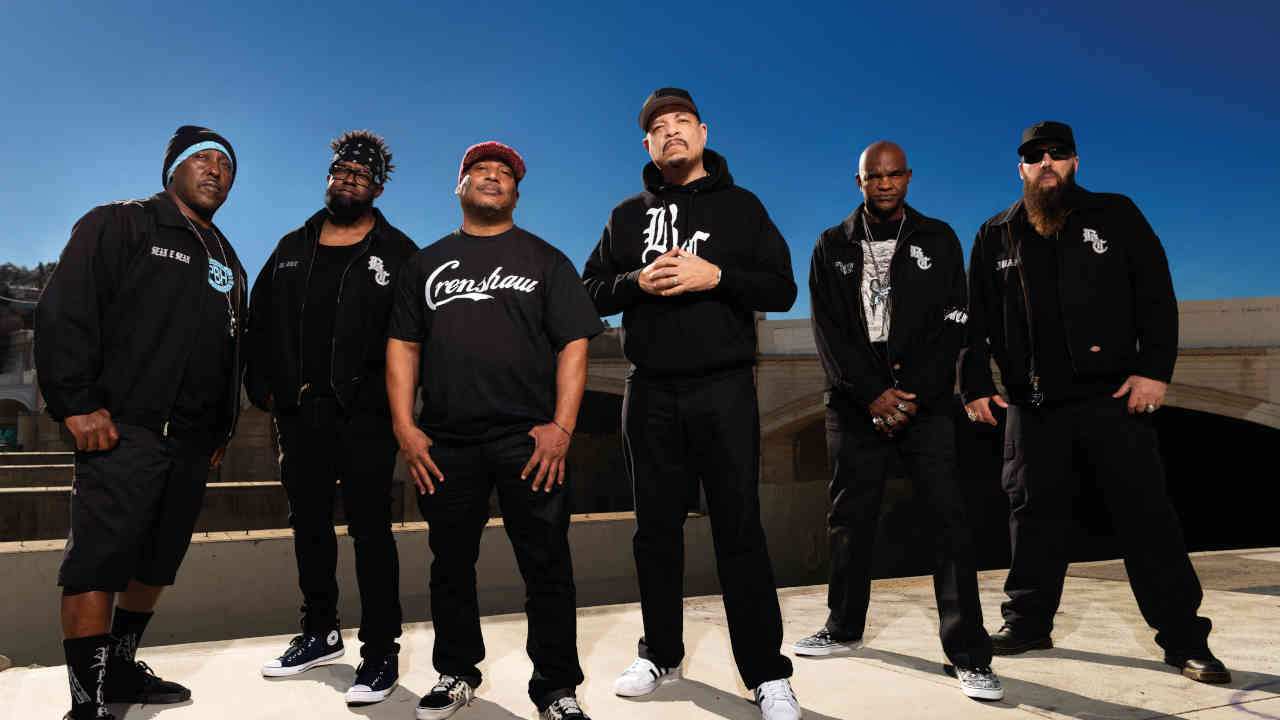
Did you imagine hip hop would become one of the commercially successful genres on the planet within a few years?
“Crazy. To us, it was just fun - no one had ever bought a car from rapping! People would say to me, ‘Ice, why you wasting your time with this rap shit?’ They thought I was bullshitting. I would break the law all week and rap at the weekend. Then I made [breakout 1987 gangsta rap track] 6 In The Mornin’, and it was like, ‘Oh shit!’ We never saw it coming.”
Did any other rappers at the time love metal like you?
“I don’t know if anyone listened to it, but that commonality is there, whether it’s LL Cool J using those big guitars or Beastie Boys rapping over Led Zeppelin. Listen to that song Wicked by Ice Cube, it’s in there for sure.”
You formed Body Count in 1990. What was the idea behind the band?
“Body Count wasn’t trying to do rap-metal, we were just trying to do metal. I was trying to cross Suicidal Tendencies, the impending doom of Black Sabbath and the speed of Slayer, but I was just going to sing the same things as I always have: motherfuckers in the parking lot with pistols!”
Body Count played the first Lollapalooza tour in 1991. How did you end up doing that?
“Ernie was doing some stuff with Perry Farrell [Jane’s Addiction frontman and Lollapalooza founder], and Perry told him he wanted me in this film he was doing called Gift. While we were shooting, Perry tells me he had this festival and he told me he wanted a rap act on it. I told him I’d love to do it. My set was an hour and they told me I could do whatever I wanted, so I thought it was a great time to debut my band.”
How did that work?
“Halfway through my set I would say, ‘Now I’m gonna prove to you that rock’n’roll has nothing to do with colour’, and we’d bring Body Count out to finish the show. It was the highlight of the day!”
Did you ever feel like you weren’t wanted at these predominately white rock shows?
“Nah, nah. It was all white kids, with a few Black kids sprinkled in there, but white rock kids had no problem with hip hop. The music is definitely connected. You don’t hear MCs say they R&B the mic, they ROCK the mic.”
Never? Seriously?
“OK, there was one gig once. We played with Exodus and D.R.I. in Northern California, and it’s all skinheads. We come out, we got the yellow police tape, all that shit, and they’re just screaming, ‘Fuck you! Fuck you!’ Within, I’ll say, 30 seconds into the set, we had a moshpit. They just didn’t know what to expect, but when we fired up those guitars, they were with us. Honestly, that’s the closest we’ve ever come to experiencing any shit.”
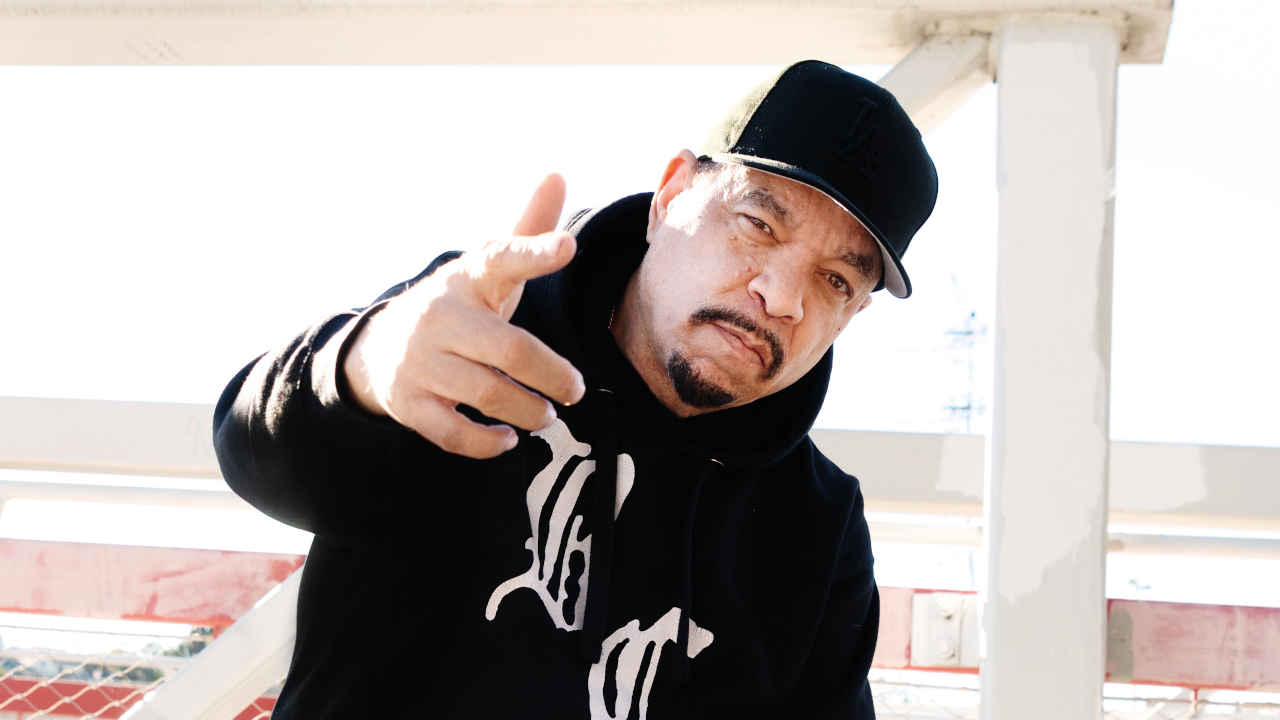
Body Count opened for Metallica and Guns N’ Roses on their co-headlining tour back in 1992. What were those dates like?
“That was dope! Ernie is close friends with Duff [McKagan, Guns N’ Roses bassist], and Kirk [Hammett, Metallica guitarist] has always been a really big fan of Body Count. Trust me, they wouldn’t have put us on if they didn’t think we could do what we do. As far as having any negativity from the fans, never. If they don’t like our shit they’re always in the minority.”
Body Count’s debut album was released in 1992, but it was overshadowed by controversy over the song Cop Killer. What are your memories of that?
“We got caught up in the media. What happened was, the police were under attack for being brutal, as usual. The police in Texas found this song and they decided to use it as a lightning rod, like this was the problem. The best defence is offence, so they attacked me. I’m the bad guy? I’m making a record, you’re out there killing people! But people went with it.”
Was there ever a time when you were fearful of what might happen to you?
“Nah, because they really went for Time Warner [parent company of Body Count’s label, Sire Records], not me personally. It was an eventful couple of years. They tried to blackball me. It is what it is. You don’t get stripes for not fighting battles.”
Why do you think they didn’t go after you personally?
“They understand why a young Black man would be harder to police. They knew why I was angry, they knew I had free speech. But Time Warner: ‘Yo, why did you guys let him do it? I thought you were on our side?’ I could see what was happening and I asked to leave.”
Cop Killer was inspired by police brutality. It’s sadly still a relevant subject, isn’t it?
“Yeah. It’s a song about a character that experiences police brutality and snaps. Thirty years later we are vindicated. Because people have camera phones, and they can see, ‘Oh! This is what Ice-T is singing about!’ We still play it, we still close our shows with it. It’s about how we feel, not what we’re gonna do.”
It could have been made today…
“No, no, no, It’s part of history and I’m glad it was made back then, because it shows how far we haven’t come. If it was made now people would think the problem just started. No, no, no, it’s been around for years.”
In 1993, you teamed up with Slayer for Disorder, a medley of three songs by UK punk band The Exploited, on the soundtrack to the movie Judgment Night. How did that come about?
“I got a call asking if I wanted to be involved in the soundtrack, and they’re telling me they’re hooking rappers up with rock bands. I was kinda insulted because I have a rock band – ‘What y’all doing?’ Then they went, ‘Oh, they want you to work with Slayer.’ ‘Slayer? Word. OK, I’m in!’”
Didn’t you see some white supremacist on TV wearing a Slayer shirt while you were there?
“Yeah, ha ha! This white supremacist group were on the box, and they were all wearing Slayer shirts. I remember Kerry [King, Slayer guitarist] turning to me and saying, ‘Wait ’til they get a load of this track!’ We still perform Disorder as a track with Body Count sometimes. I’m honoured to be one of the only people who has done a duet with them.”
You’ve worked with so many huge metal artists over the years, from Slayer and Megadeth to Motörhead and Hatebreed…
“It’s mutual respect. Those cats have energy, and I like to think that there is an Ice-T energy. Lemmy was such a cool guy. All ego went out the door, we were all just people, but I was still in awe. I had fun with all of them, and I’ll take it to my grave, because some of that shit was wild!”
You’re good friends with Dave Mustaine as well. How did that come about?
“I fuck with Dave because he is the best in his field. He had been asked to pick his top five albums of the year one year, and he’d just put [Ice’s 1991 hip hop album] Original Gangster there five times. I’m like, ‘I gotta meet this motherfucker!’ He told me it’s the best rap album ever made. And that mutual respect remains to this day, and it’s a beautiful place when you find it.”
You and Dave are pretty different people. What’s the common ground?
“We both respect each other. Dave is very opinionated, he has his own way of seeing things, and I do too, but we meet as men. We talk and sometimes it’s like, ‘I’m not feeling that, but I respect your opinion.’ It never drops because we hold each other in high regard, and when you do that all the rock star bullshit goes away.”
You must be the only person to have Grammys for Best Rap and Best Metal Performances.
“Yeah, the first one I got was with [legendary producer] Quincy Jones [in 1990, for rapping on the Jones-produced track Back On The Block]. He sort of snuck us through the back door because they weren’t really recognising rap back then. Body Count got nominated for Black Hoodie [for 2018’s Grammys]. We performed it at the pre-show, they took us backstage and had the cameras on us, and we’re going ‘We won it! We won it!’ and they go, ‘And the winner is… Mastodon!’ So the second year we got nominated, for Bum-Rush [for 2021’s Grammys], I was sitting right here at this table: ‘Fuck awards, fuck that bullshit… oh, we’re nominated?!’ You appreciate when you get them.”
You’re an award-winning rapper, rocker, actor and podcast host. Do you still feel like that hungry, driven guy sleeping in a car?
“Absolutely. I feel like at any second this could all be taken away from me. People ask why my hustle is so strong. It’s a survival instinct that is driven into you. I’m so appreciative of everything. You’re only here for a short time, man.”
Ice-T’s Daily Game podcast is available now via Apple, Spotify and more
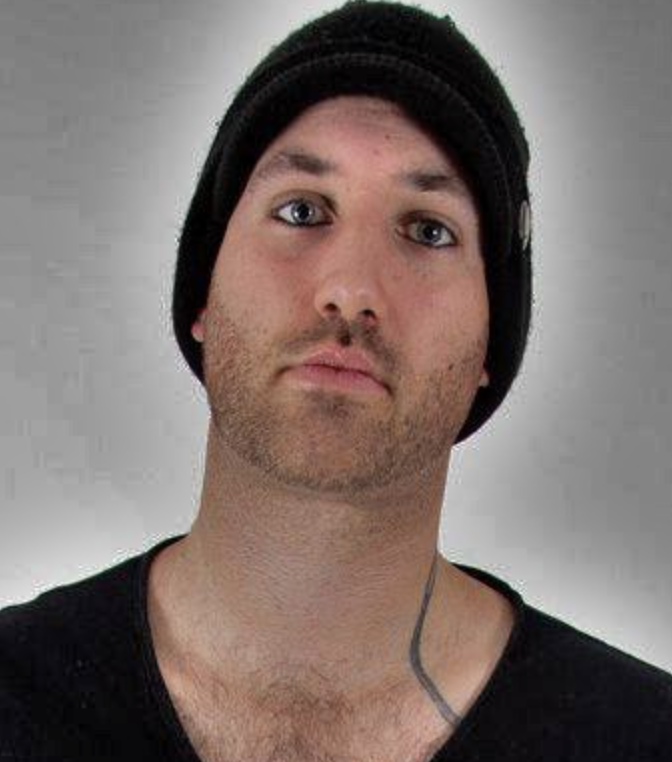
Stephen joined the Louder team as a co-host of the Metal Hammer Podcast in late 2011, eventually becoming a regular contributor to the magazine. He has since written hundreds of articles for Metal Hammer, Classic Rock and Louder, specialising in punk, hardcore and 90s metal. He also presents the Trve. Cvlt. Pop! podcast with Gaz Jones and makes regular appearances on the Bangers And Most podcast.
